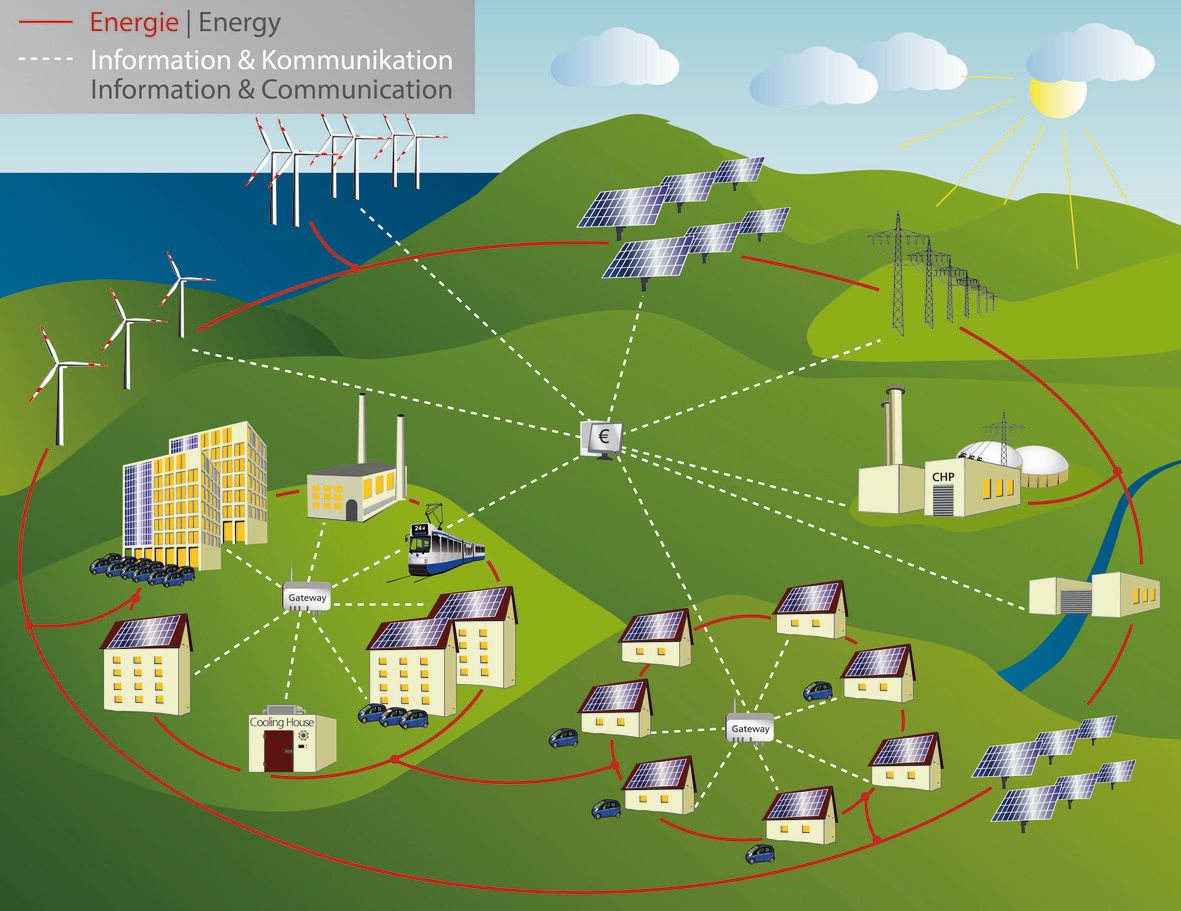| Duration: | 12/2020 - 06/2024 |
| Contracting Authority/ Sponsors: | Federal Ministry of Economic Affairs and Energy (BMWi) |
| Project Partners: | Südwestdeutsche Stromhandels GmbH (SWS); Aschaffenburger Versorgungs-GmbH (AVG); Hochschule Offenburg (HSO) |
| Project Focus: |
BKM_2.0 – Analysis of Peer-2-Peer Marketing of Electricity and Development of a Balancing Group Management 2.0

The energy transition will not only bring about a technological but also a structural change in the energy system. There are already initial projects in which direct or Peer-2-Peer trading concepts allow local producers and consumers to exchange dynamically varying amounts of electricity directly without resorting to the classic structure of energy supply such as energy markets or wholesalers. The question is how these future possible trading structures will affect established balancing processes such as balancing group management. The central objective of the "BKM_2.0" project, which is funded by the German Federal Ministry for Economic Affairs and Energy, is to develop methodological, regulatory and technical solutions for linking and adapting processes between classic balancing group management and innovative energy trading processes.
In the project, different Peer-2-Peer trading concepts are described on the basis of the current state of the art technology and different scenarios for their market penetration are evaluated. It is analyzed, how relevant criteria such as the price mechanism or the group composition are for the trading outcome or how they influence it. This is done on the basis of game-theoretic approaches.
P2P mechanisms are embedded in the overall energy supply system and grid operation. In order to describe statements regarding possible effects and interactions with the local reference systems for different market penetrations, in particular the total energy flows occurring in the intersectoral interaction and technical restrictions in the local grid operation, a modeling of the energy system as well as a grid simulation is carried out. From this model-based analysis, as well as the knowledge of the different P2P concepts, requirements for a new balancing group management are derived.
Parallel to the scientific investigation of P2P trading concepts, a local trading concept and the implementation of a balancing group management 2.0 are being field tested at Aschaffenburger Versorgungs-GmbH together with Südwestdeutsche Stromhandels GmbH. In addition to the prosumers, all other relevant actors of the energy supplier, grid operator and balancing group manager are involved in the field test.
It is to be expected that with a strong penetration of the power system with P2P trading processes and the implementation of new methods of balancing group management, there will also be repercussions on the power system, especially with regard to changes in the power plant park and the impact on the need for storage and grid expansion. Secondary effects on the exchange electricity price, procurement costs and balancing energy management are to be expected. In the project, such aspects will be investigated via a simulation with a further developed open source electricity market model.
In addition to the Fraunhofer Institute for Solar Energy Systems ISE, the project partners are Südwestdeutsche Stromhandels GmbH, Aschaffenburger Versorgungs-GmbH and Offenburg University of Applied Sciences.